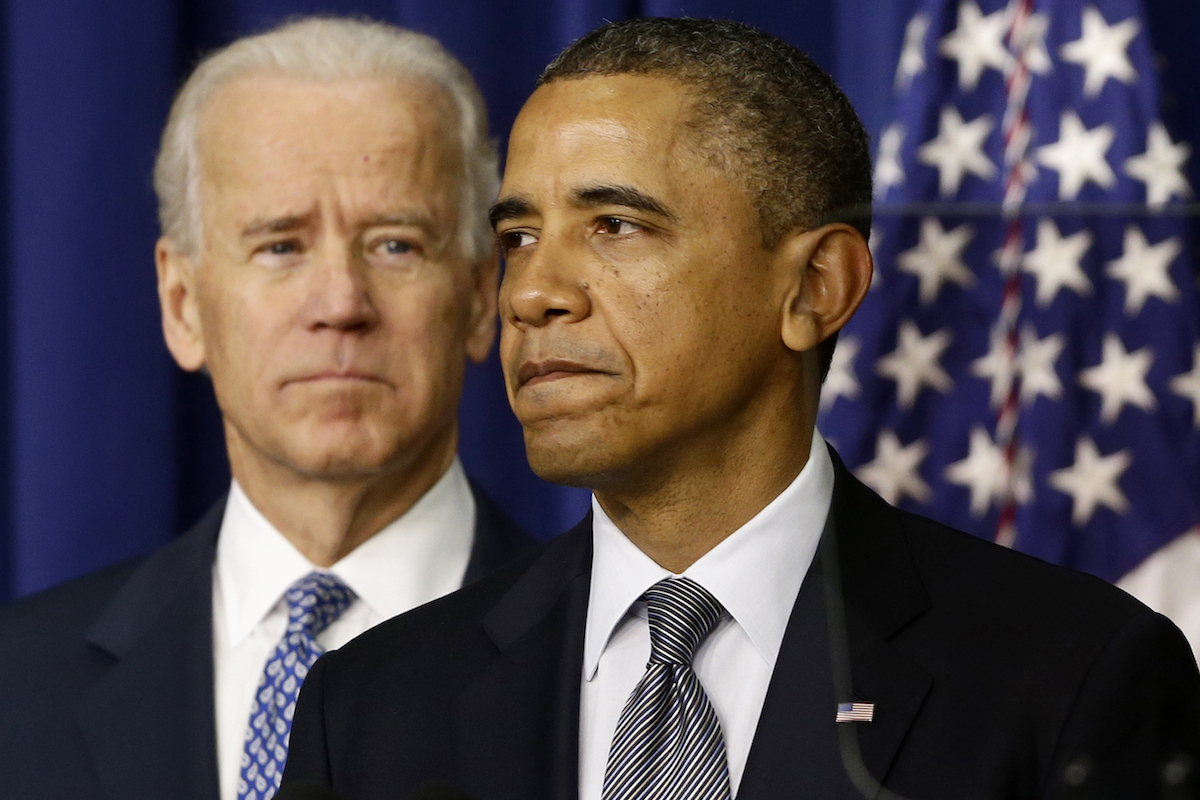This diatribe was inspired by the most amusing book I’ve ever encountered. While perusing the wares of a D.C. bookstore, I came across a tome entitled Hope Never Dies by New York Times bestselling author Andrew Shaffer, released in 2018. It isn’t an inspirational feel-good-about-your-life how-to or workout guide that makes weird forays into the philosophical. It is, and you are reading this correctly, a work of presidential fanfiction.
For those of you unfamiliar, here is a brief summary paraphrased from the book’s back cover:
It’s been several months since the 2016 presidential election, and “Uncle Joe” Biden is puttering around his house, feeling lost and adrift in an America that doesn’t make sense anymore. But when his favorite Amtrak conductor dies in a suspicious accident, Joe leaps into the role of amateur sleuth, with a little help from his old friend President Barack Obama (code name: Renegade). Together they’ll plumb the darkest depths of Delaware as they uncover the sinister forces advancing America’s opioid epidemic.
The book is definitely as weird as it sounds. After Finn Donnelly, Joe Biden’s favorite train conductor, is found dead on the train tracks with a bag of heroin in his pocket, the former vice president jumps into action to solve what he believes to be a murder. Partnering with Barack Obama in an attempt to rekindle their best friendship from years in the White House, and joined by trusty Secret Service agent “Steve,” the crew encounters outlaw biker gangs, breaks into cheap motels, and uncovers a sinister drug-related plot involving corrupt cops. The plot includes such antics as Barack Obama clocking bikers on the side of the head with a shotgun, Joe Biden interrogating a subway shoeshiner for information about overdosed Amtrak colleagues, and men being thrown out of hundred-mile-an-hour trains and surviving to attempt murder on the esrtwhile vice president.
One dream sequence involves Barack Obama in a white toga astride a rainbow unicorn. I am not making this up. Page 244, should you care to check. This is what my journalistic career has come to.
The book ends with the case solved and Biden realizing that his success—despite bungling most of it and being rebuked by the gruff law-and-order Lt. Selena Esposito (the only openly Republican character in the book, who of course ends up being in the wrong)—may have inspired him to get back into the rat race of American politics. Was this not fiction, I know I’d have some questions for Shaffer.
I’ll leave it there, as this isn’t a conventional book review (nor a conventional book, as you can see). You’ll have to go to a Barnes & Noble and thumb through it for yourself for more (I doubt you’ll end up buying it). In the end, Shaffer makes clear that the book is nothing more than lighthearted writing intended to bring amusement to the reader. The existence of such books, dubbed “escapist fantasy” by one reviewer, does seem to raise naturally such questions as, What lies beneath the surface of our desires for political escapism? Is it beneficial to spend time pining for days past, for the leaders of bygone eras who may have tickled our fancy or warmed our hearts by their perceived greatness? Those are the issues I prefer to explore a little more deeply, instead of just knocking down a Barack Obama—Joe Biden mystery novel. That would be taking-candy-from-a-baby levels of easy.
The desire to return to past political ages is always one that takes on extra significance during election season. Much has been made of the extent to which Donald Trump holds sway over the Republican Party for the election cycles of 2022 and 2024, and it’s not much of a stretch to venture that the popularity of Barack Obama paved at least part of the way for his vice president to return to the White House in 2020. To an extent, it’s understandable: For diehard political supporters on either side, it’s very easy to conclude that simply placing one’s preferred candidate into the current political milieu will result in some noticeable uptick in quality of life.
It’s the compelling notion of the good old days. If you were an ardent Obama supporter bemoaning the coming years of the Trump administration (Hope Never Dies was released in 2018), it’s very easy to think that if Trump were miraculously replaced by Obama, all the perceived Trump negatives—racially insensitive rhetoric, Charlottesville, James Comey, Russia—would instantaneously disappear and America would enter a racially harmonious, forward-thinking phase of history, which for many Obama symbolized.
If you’re a diehard Trump supporter, however, bemoaning the Biden administration, it’s easy to imagine that if Biden suddenly disappeared and was replaced by Trump, all the issues that the current administration struggles with (inflation, high gas prices, mass migration at the border) would slowly but surely dissipate as MAGA power took effect.
Astute readers will shake their heads at the examples given, and for good reason—they’re all absurdly imaginary. Sheer nostalgia and fairy dust memories of the “good old days” are soon head-butted by reality. Gas would not immediately drop to $2 a gallon tomorrow if Trump came back into control of the Oval Office today. America would not return to an optimistic, racially reconciled utopia if Obama returned as leader of the free world. (It wasn’t even a utopia when he was in office, but that’s another argument.)
These are obvious premises to Americans who aren’t particularly devoted to a party line or politician, but events even within the past two years have demonstrated that devotion to a politician or party can easily spill over from mere fanfiction reading and pixie dust into real violence that reminds the country of how truly polarized we’ve become. The type of people who launch insurrections at the Capitol or perpetrate vandalism and arson against pro-life pregnancy centers didn’t simply wake up one day and decide to do it. They’re urged on, by social media, groupthink, negative polarization, and our own natural human tendency to be dysfunctional. Political violence is political escapism applied—if the good old days are truly better, it’s a very short logical jump to doing whatever it takes to bring those good old days back, even if they’re not nearly as good as we remembered.
In his magnificent essay in The Atlantic, Jonathan Haidt writes about how America has come to resemble the earth after the events of the Tower of Babel, as described in the Old Testament. “What would it be like to live in Babel in the days after its destruction?” Haidt asks. “We know. It is a time of confusion and loss. But it is also a time to reflect, listen, and build. … We must change ourselves and our communities.”
That’s what lies at the heart of our political escapism: discomfort with our current situation and a fleeting hope that maybe the past was a better deal. But yet we cannot escape to that past. Like the Israelites of that same Old Testament, we are no longer in the land of Egypt eating the cucumbers and leeks of Pharaoh. We are in fact wandering far from that supposedly golden past, in a social landscape that often feels like a wilderness. But even as the Israelites conveniently forgot that the cucumbers and leeks of Pharaoh came with the stinging whips of slavery, our past isn’t so rosy and free from trial either. Perhaps, like them, it’s for us to shoulder the reality we’ve been given, unite our communities around the values that we share, and face the wilderness.

